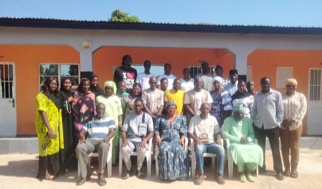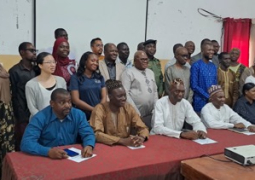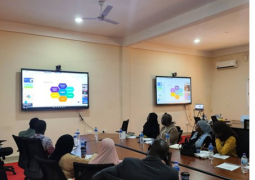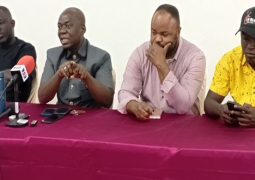
Organized by the National Nutrition Agency (NaNA), the six-day training was held at Pakalinding-Mansa Konko in the Lower River Region.
The project was designed to facilitate the work of the project staff and other stakeholders including the communities involved in the implementation of the Vulnerable Youth and Women Support Project (VYWoSP) by helping define the rules, regulations and procedures that guide the implementation, management, supervision and monitoring of project activities.
The capacity building forum also seeks to allow better communication and coordination among all the actors and partners involved in the implementation of the project.
According to NaNA officials, the training seeks to put in operational terms the project activities within the implementation context and in conformity with the requirements contained and embodied in the Project Appraisal Report (PAR) and the Grant Financing Agreement (FA) reached during The Gambia Government-African Development AfDB Group negotiations, African Development AfDB Group procurement and reporting guidelines, The Gambia Public Procurement Act, etc.
The project, is aligned with The Gambia’s Green Recovery Focused National Development Plan (NDP) 2023-2027 strategic objectives on human capital development and social inclusion validated in December 2022.
Stakeholders revealed that The Gambia Government aims to invest in the people through the provision of quality health, education, and basic social services, and improved social and child protection systems for the most vulnerable.
The project is also aligned with the National Gender Policy (under review) on poverty reduction and economic empowerment. it will contribute to Goal 1 (A High Standard of Living, Quality of Life and Well Being for All Citizens), Goal 3 (Healthy and well-nourished citizens) and Goal 17 (gender equality) of the AU Agenda 2063, and to 4 SDGs: SDG 3 (Good health and well-being); SDG 4 (Quality education); SDG 5 (Gender equality); and SGD 8 (Decent work and economic growth).
It further seeks to foster economic and social inclusion amongst the most vulnerable, by strengthening their capabilities and their productivity to allow them to take advantage of economic opportunities in the agricultural value chains, and to enable them to fully participate in the economic transformation of the country.
According to the project components and outcomes, vulnerability and poverty are multidimensional. A holistic approach is therefore necessary to support vulnerable and/or poor people to sustainably get out of poverty and reduce their exposure to the multifaceted risks they face in their daily lives.





